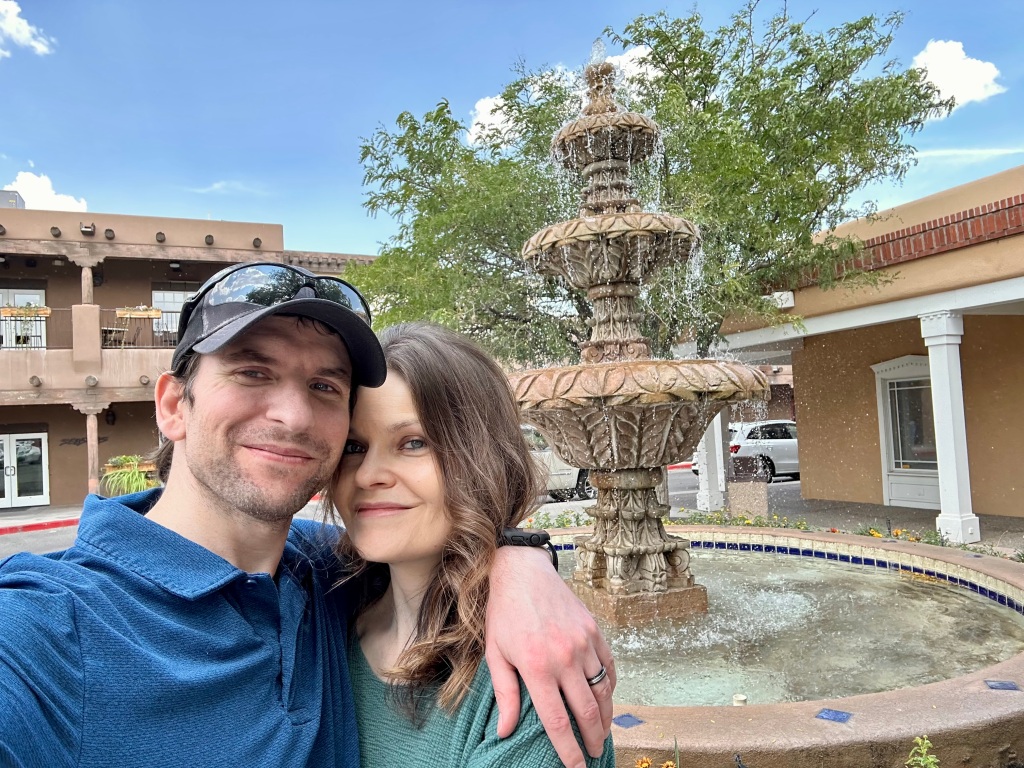“I wish for a world that views disability, mental or physical, not as a hindrance but as unique attributes that can be seen as powerful assets if given the right opportunities”
– Oliver Sacks
“Oh, I’m disabled.”
That simple reply follows the inevitable question posed every single time my husband meets someone. He avoided it for years. He would first reply with his old profession (private security) and then his new one (landscape photography), then he simply gave in and was honest. He doesn’t work because he is in all ways it is defined…disabled.
His dopamine responsive dystonia (DRD) pulled him out of the workforce in 2014. He could not physically work. His body was stiff, tremoring and causing pain. His mental faculties began to decline precipitously as well. Post-Its did not work and he could not complete his tasks, so he was forced to resign. We barely made it with one paycheck and the generosity of two sets of parents. We did everything we could for years to get Social Security Disability Insurance (SSDI) and we finally got it. Definitely not a windfall, but it means rent was paid on time and we didn’t have to rely so heavily on our families. I will not moan about this time in our lives. We are the fortunate ones. Many people who are evicted and can’t afford food and medication do not have family that can help.
Fast forward to today. My husband cannot make a living as a photographer (his dream endeavor) not because it is really hard to be an artist to begin with, but because his disease makes this work downright impossible. At least for now until surgeries and other treatments might help. So…he answers the question of, “So what do you do for a living” with “I’m disabled”.
What follows is always expected. The questioner becomes noticeably uncomfortable. There is no time to get into it in a casual conversation. The years of trying to find a diagnosis. What daily life is like for him. So the discomfort goes both ways.
No…we are not offended that you asked a question to learn more about us. And yes…he is actually disabled, not lazy. No…we don’t assume you jumped to the conclusion that he is not disabled and is mooching of the government. Or did you? Argh! All these thoughts are jumping in everyone’s heads with no opportunity to dig in and really learn about each other. Because we just met. That’s kind of weird.
My husband does a really good job of hiding his disability in public. He smiles, he walks he stands. But, about 20 minutes in, you might notice he leans as he struggles with pain from standing. He starts squinting and clenching his jaw just a bit. Then you might catch a limp. I’ll have to excuse us (we leave early for everything) and at that point he’ll barely make it to the car. He’ll be in pain for the rest of the day followed by a “bad day” where it is hard for him to even move around our apartment.
Some days are better. He can go out and even spend a few hours in public spaces. Costco is like running a marathon. He loves Costco, but the rest of the day and the next day is rough.

Getting out of the apartment is such a rare occasion that even mundane errands warrant a selfie.
Why does he even try? Well, dear reader, to be…um…human? He needs social interaction just like everyone else, even when it causes physical pain and confusion for others.
Don’t hesitate to ask about his disability. We’re not ashamed of it and discussing it is a form of creating awareness. It empowers us, because so many people have yet to find their voice when it comes to their own disability. By talking openly we can create more comfortable spaces for everyone. You can also go beyond and ask what he loves to do. My husband is an amazing artist. He loves everything science. He is much more than his disease.
Even though I can talk about my job, you can ask me about my disability, too! At least give me a shot before passing judgement on why I have to leave early or why I can’t eat or drink this or that. I’m a total open book about ulcerative colitis and IBS! I’ve learned so much about the lining of the colon these past couple of years…fascinating! I’ll take you there, but I understand if you don’t want to go there, as my disability has more of an “Ew” factor even though it allows me to work still. I’ve been seizure-free for fifteen years, but mentioning my epilepsy still makes people uncomfortable. No one wants to be the person that has to respond to a seizure, it’s scary! So when people learn I have epilepsy, the most common response is that they cross their arms and take two steps backward. I wish I was kidding. I don’t get hurt by it anymore. If you aren’t the cool and calm person when it comes to emergency medical situations, we’re probably not going to be besties anyway.
I don’t speak for all those that are disabled, both with jobs and those on SSDI, but I will speak for me and my husband on the subject. Our diseases give us plenty to fear and fight. So, talking about is not at all uncomfortable compared to living with it. You shouldn’t be uncomfortable either. Don’t give up on making a connection. Connections are healthy…even with those of us that are not.